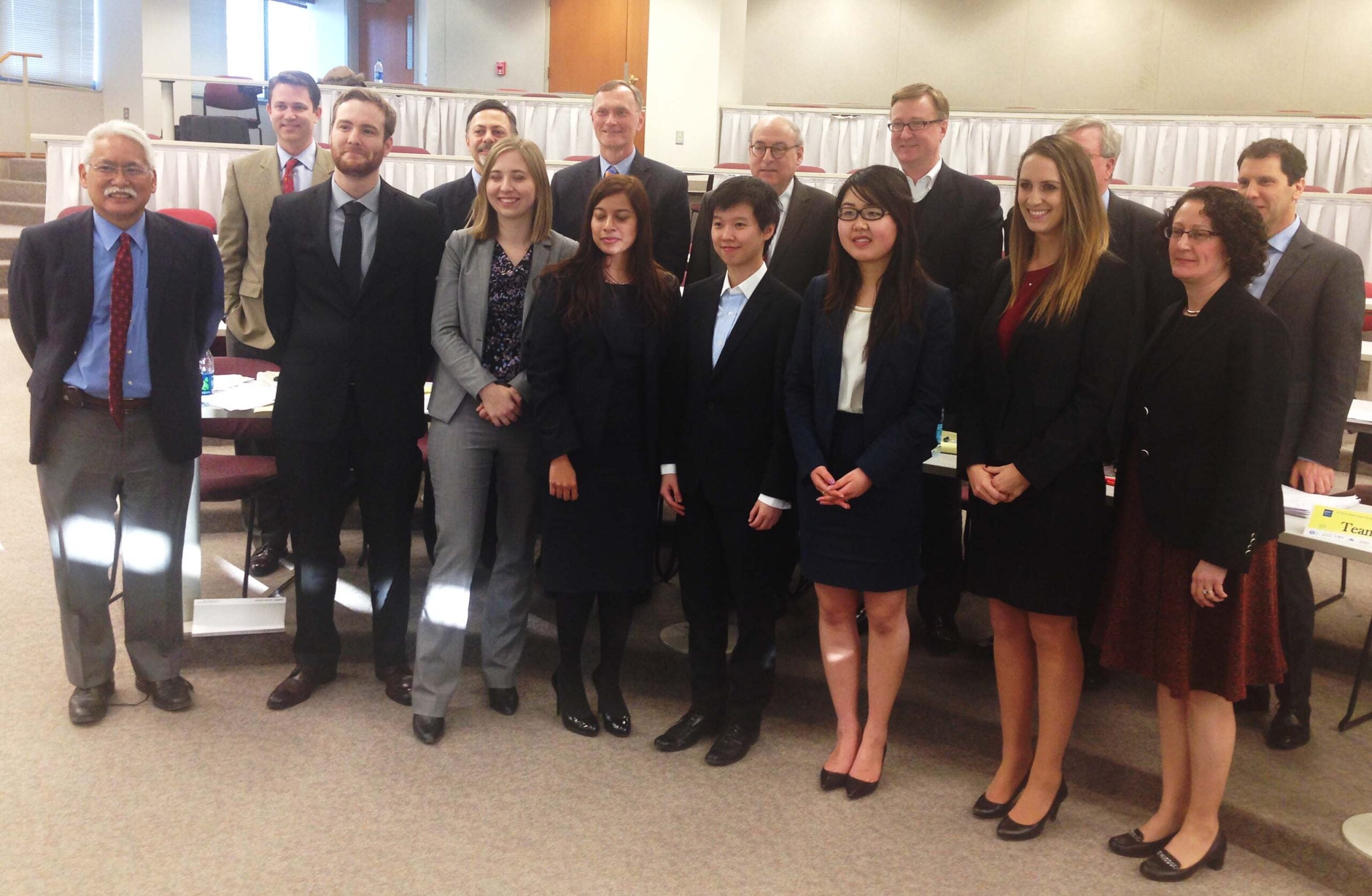For the fourth year in a row, a team of Harvard Law School students won the North American regional moot court competition on WTO (World Trade Organization) law at the ELSA Moot Court Competition (EMC²). The annual competition was held at American University in Washington D.C. and featured universities competing from North and South America.
Winning team members Astina Au (LL.M. ’15), Mengyi Wang ’15 and Jillian Ventura ’17 will participate in the international final round in June at the WTO Headquarters in Geneva, Switzerland.
The ELSA Moot Court Competition is a simulated hearing of the World Trade Organization (WTO) dispute settlement system and is organized annually by The European Law Students’ Association (ELSA). The competition is open to teams from around the globe.
Professor Mark Wu, an expert in international trade and intellectual property law, has served as the WTO moot court team faculty adviser since its inception four years ago.
In addition to winning the North American regional championship, Au won Best Oralist in the Preliminary Rounds and Best Oralist for the Final Round, marking the fourth consecutive year that a Harvard Law School student has earned top marks for oral presentation.
“For me, the most exciting part of the competition was the opportunity to present oral arguments in front of Appellate Body Members, making the experience all the more authentic and challenging.” Au said after the win. “I also enjoyed untangling the intricate legal issues planted in this year’s problem, most of which are cutting-edge issues currently being debated in the trade community.”
Kamola Kobildjanova ’15 and Jason Nichol ’15, members of last year’s team that placed second in the global finals, coached this year’s team.
“Kamola and I were incredibly impressed with our team’s performance in the North American round,” said Nichol. “This year’s case was particularly challenging, addressing sophisticated legal issues with very limited precedent. Our team was able to present a coherent narrative and make important policy arguments to fill in gray areas of the law.”
Team members were selected based on tryouts held in the fall. Preparation for the competition included writing briefs for both the complainant and respondent sides of the case, which required significant research on WTO case law and scholarly writings on the issues. After submitting their briefs, the team met several times a week leading up to the competition to prepare for oral arguments.
Following the event, Nichol stated, “The team spent countless hours researching, briefing, testing, and arguing the issues in front of Professor Wu and other trade experts. Astina, Mengyi, Jillian, and Habin (Chung, who was unable to participate in the competition due to her selection as an Ames finalist) wrote persuasive, comprehensive briefs and engaged the panelist judges in a rich dialogue covering many areas of WTO law. As a former ELSA WTO Moot competitor and now-coach, I couldn’t be more proud of the team’s performance and look forward to seeing them turn up the heat in Geneva.”
